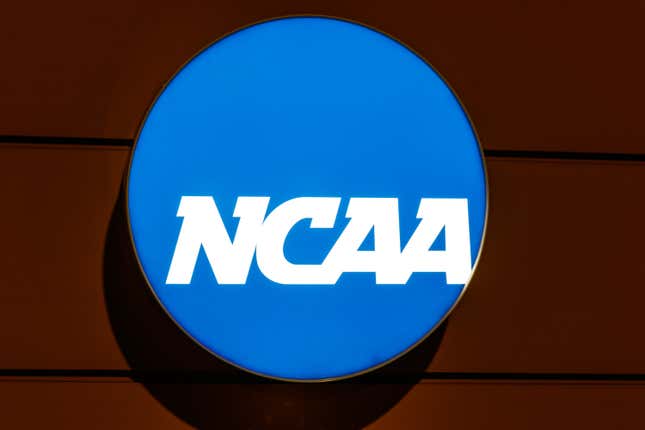
The Supreme Court has agreed to take on an antitrust case that could either tighten or substantially loosen the limits of how much student-athletes are allowed to be paid. This will be the first time in over 30 years the court will rule on a case involving the NCAA.
According to the Associated Press, the court will review a lower court decision that the NCAA says blurs “the line between student-athletes and professionals.” The ruling removed caps on payments or benefits related to education. (Think scholarships, internships, laptops, and other things of that nature.) That decision was upheld in May by a three-judge panel of the 9th U.S. Circuit Court of Appeals, and in August, Justice Elena Kagan denied a request by the NCAA to place a hold on the ruling while it formally petitioned the court.
The NCAA really said, “Look, they ruled against us so can you just make it not count until we maybe get our way?”
The case was initially brought forth by Shawne Alston, a former West Virginia football player, along with several others. Both advocates for the athletes and the NCAA were pleased to hear the Supreme Court would be hearing the case. Ramogi Huma, a former UCLA football player and leader of the National College Players Association, told Politico that the Supreme Court could find that “the lower courts didn’t go far enough in allowing athlete compensation.”
Donald Remy, the NCAA’s chief legal officer, released a statement saying that the Supreme Court’s ruling could potentially allow the organization “to improve the student-athlete experience without facing never-ending litigation regarding these changes.”
The NCAA has argued that the initial ruling creates a “pay-for-play” system which, um, that’s just how it should work? If you’re rendering a service, then capitalism dictates one should be paid for services rendered, right? Usually, if you’re really good at providing that service, people are typically willing to pay more to secure it.
Wait, why am I explaining the basic rules of capitalism to one of the greediest organizations in America?
Now, it should be noted that the NCAA is currently in the process of rewriting its rules to allow athletes to be paid for endorsements and brand deals. Since this is the NCAA, though, there are quite a few caveats to this.
See, there are efforts by legislators in over two dozen states to introduce legislation that would allow student-athletes to profit off their personal brands. Democrats in Congress are working on a so-called “College Athletes Bill of Rights” that would allow athletes both to make money off their own brands and engage in “revenue-sharing agreements with athletic associations, conferences and schools that make money off college sports.”
The NCAA is pushing for Congress to instead pass legislation that would undercut those efforts and essentially allow the NCAA to place restrictions on just how much student-athletes can earn.
A bill from Senate Commerce Chair Roger Wicker (R-Miss.) more or less would fulfill those desires by allowing the federal government, along with a private entity selected by the Federal Trade Commission (so the NCAA), to develop the rules and restrictions regarding how much the athletes make.
The Supreme Court will hear arguments in late spring, with a ruling to be expected by early summer before the end of the Court’s current term.
Considering the fact that only a handful of players will see their investment paid off with a career as a professional athlete, I don’t see why this has been subject to so much debate. If an organization is making billions of dollars on the back of free labor, that ain’t sports, my guy.
That’s more akin to something with a very different name.

